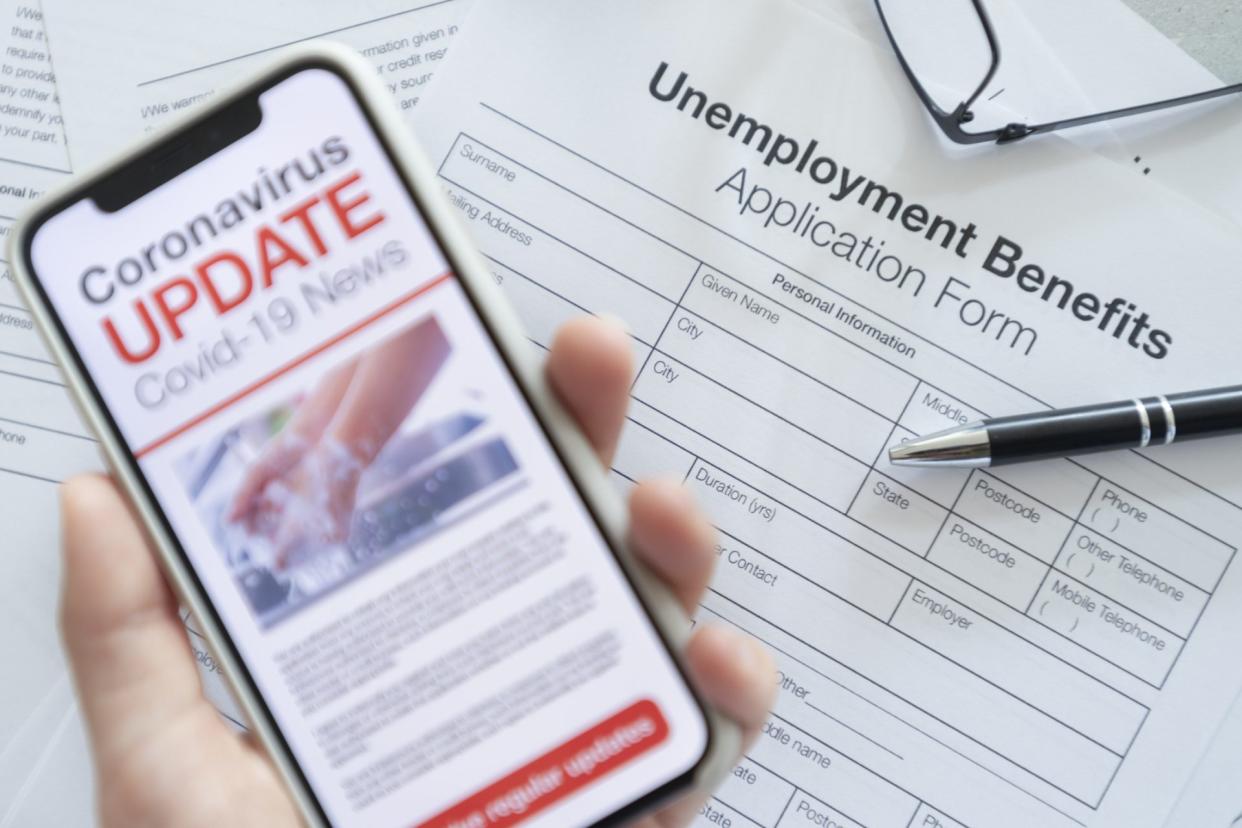More States Opt To End Enhanced Jobless Benefits Early — Is Yours One of Them?

The list of states that are opting out of enhanced federal unemployment benefits before they are due to expire keeps getting longer.
See: How To Go Back To Work And Still Keep Unemployment Benefits
Find: Tax Refunds on 2020 Unemployment Benefits Due to Begin This Month
As Fox Business reported earlier this week, at least 21 GOP-led states plan to end supplemental unemployment benefits that were approved by the federal government as a way to help jobless Americans during the COVID-19 pandemic. These states are specifically targeting an additional $300 a week in benefits included in the American Rescue Plan, which are not due to expire until Sept. 6.
Here are the states that said they will end the extra $300 in benefits sometime this summer, per Fox Business:
Alabama
Alaska
Arizona
Arkansas
Georgia
Idaho
Indiana
Iowa
Mississippi
Missouri
Montana
North Dakota
Ohio
Oklahoma
South Carolina
South Dakota
Tennessee
Texas
Utah
West Virginia
Wyoming
See: IRS Announces it Will Automatically Correct Tax Returns for Unemployment Tax Breaks
Find: Biden to Expand Employee Retention Tax Credit Amidst Weak Jobs Report
Florida is also considering ending the enhanced payment early, ABC News reported. Nebraska has said it will maintain the payments while it evaluates all of the pandemic-related jobless benefits.
Those who favor ending benefits early say doing so will incentivize more jobless Americans to seek work, while also helping businesses that are struggling to find employees.
In April, the U.S. economy added only 266,000 jobs, according to data from the Labor Department. That was well below the 1 million new jobs economists expected. Many Republican lawmakers put much of the blame on the additional unemployment benefits.
Officials attributed the decisions to labor shortages in their respective states. Enhanced benefits, they claim, are keeping people from returning to work and making it difficult for businesses to hire for open jobs.
“My decision is based on a fundamental conservative principle — we do not want people on unemployment,” Idaho Gov. Brad Little said Tuesday. “We want people working. A strong economy cannot exist without workers returning to a job.”
However, many economic experts say the worker shortage has more to do with a lack of child care and fears of contracting COVID-19. As Bloomberg reported on Thursday, those issues have a particular impact on the lowest-paid workers. Experts suggest that cutting off aid early will only deepen the inequalities between rich and poor Americans.
In a country with no paid leave from work, universal health care or child care and a minimum wage that hasn’t increased in more than a decade, unemployment benefits have only become more important for struggling Americans, experts say.
“It’s going to hurt a lot of people a great deal,” said Kate Bronfenbrenner, director of labor education research at the School of Industrial and Labor Relations at Cornell University, about the early end of unemployment benefits in 20 states. “We’re going to see children go hungry and we’re going to see people be evicted.”
Meanwhile, the most recent data on jobless claims, which came out on Thursday, showed a decline in applications for state unemployment insurance to a new pandemic low, a sign of steady improvement in the labor market.
To find out more about what unemployment benefits are available and how to apply, visit the USA.gov website.
More From GOBankingRates
This article originally appeared on GOBankingRates.com: More States Opt To End Enhanced Jobless Benefits Early — Is Yours One of Them?
